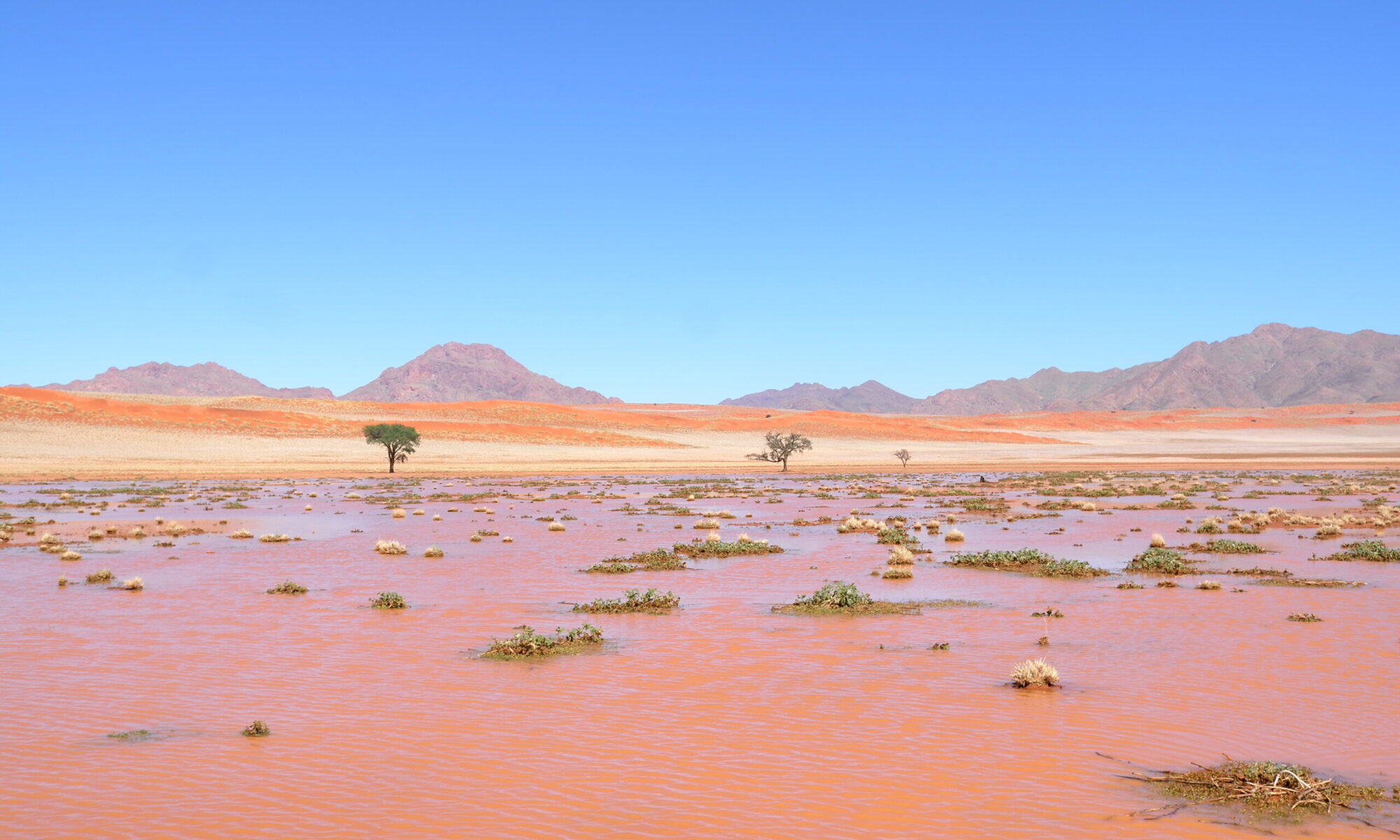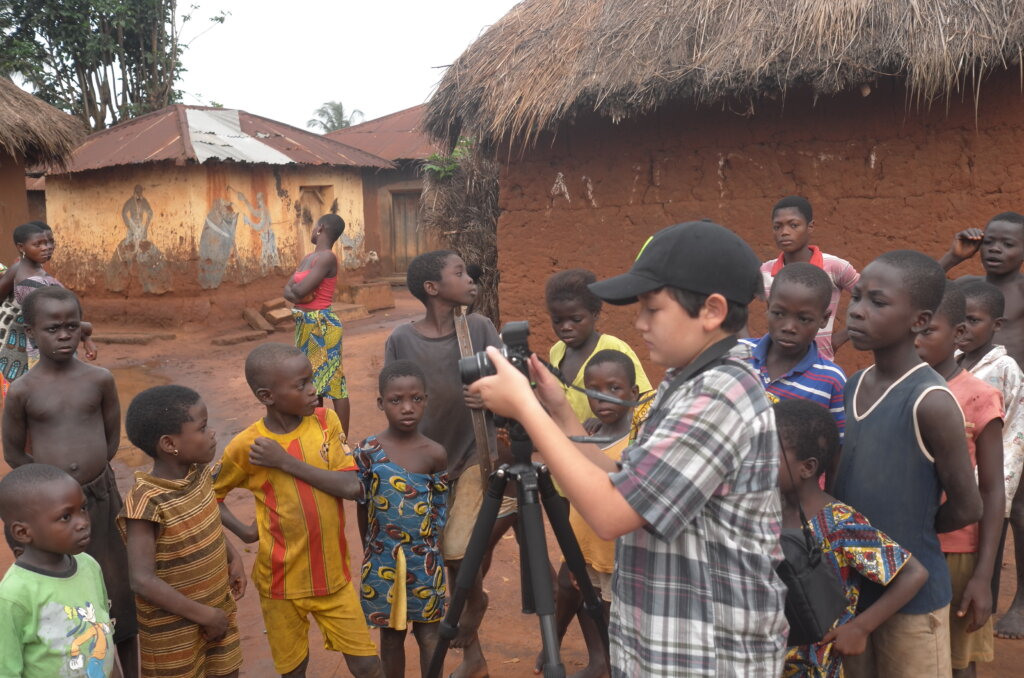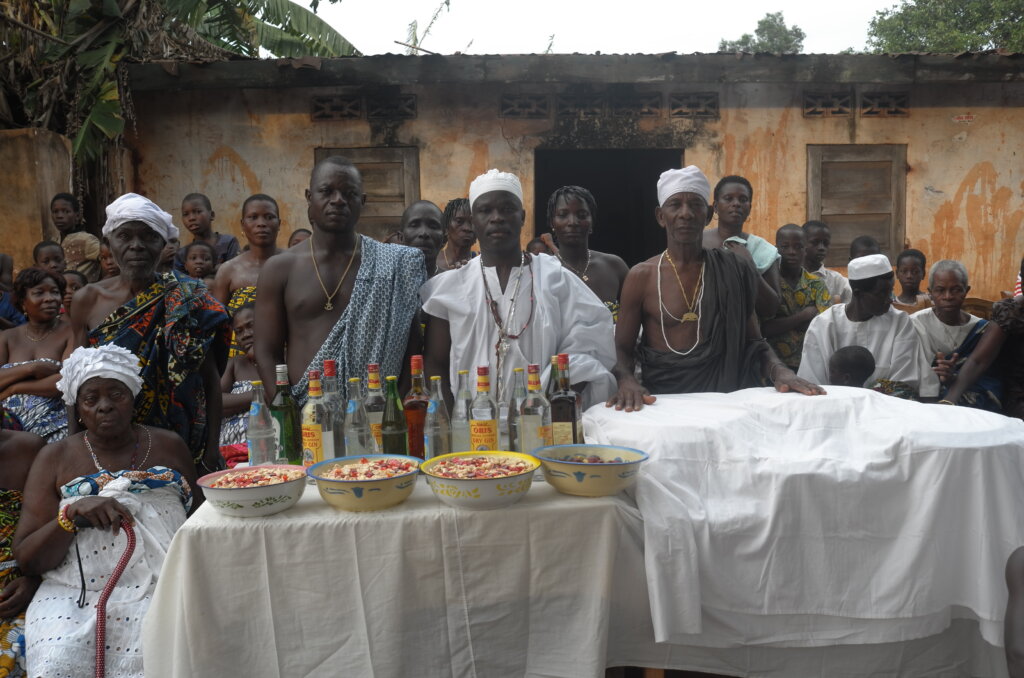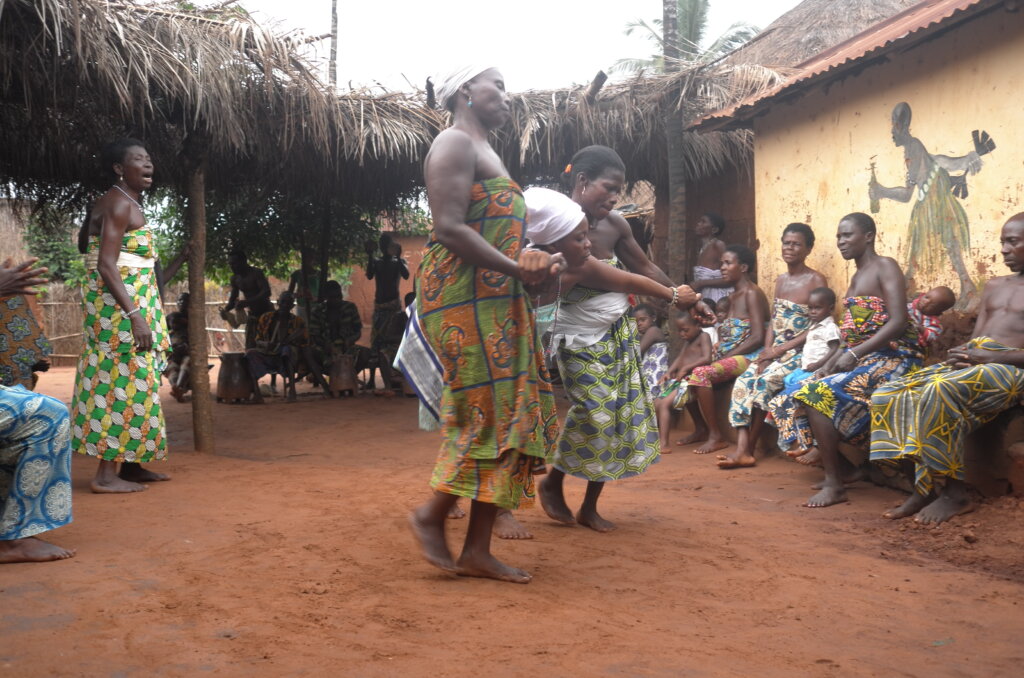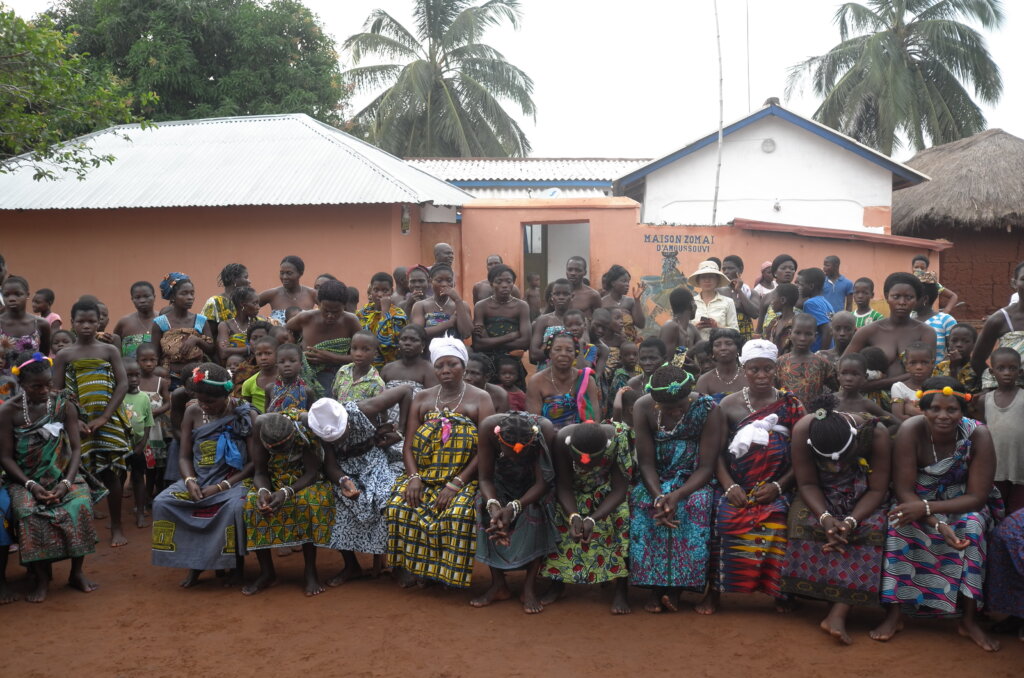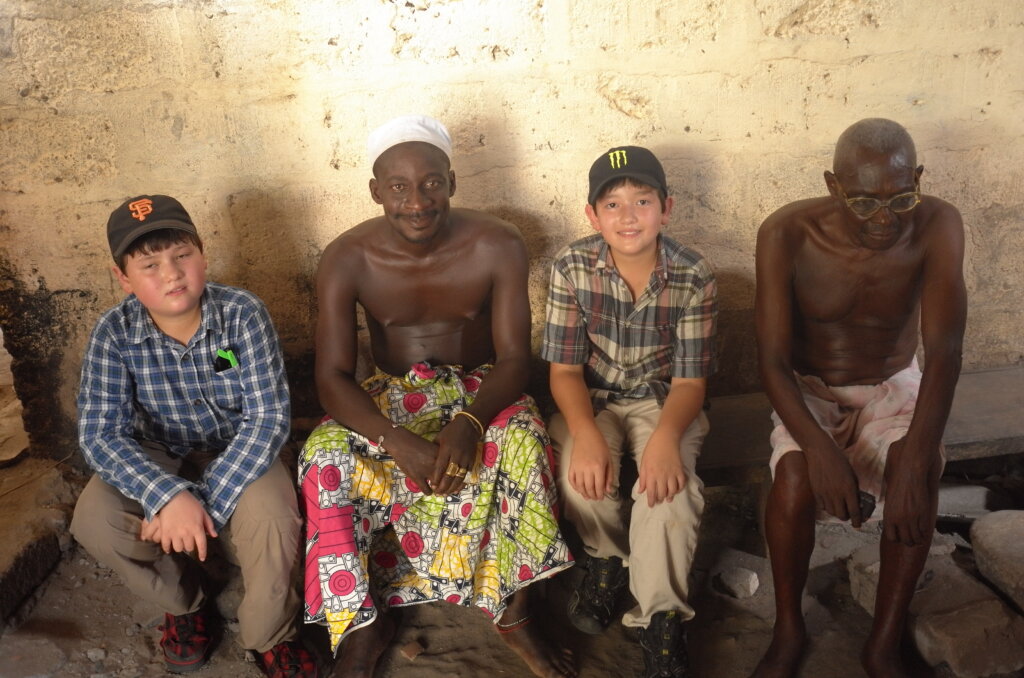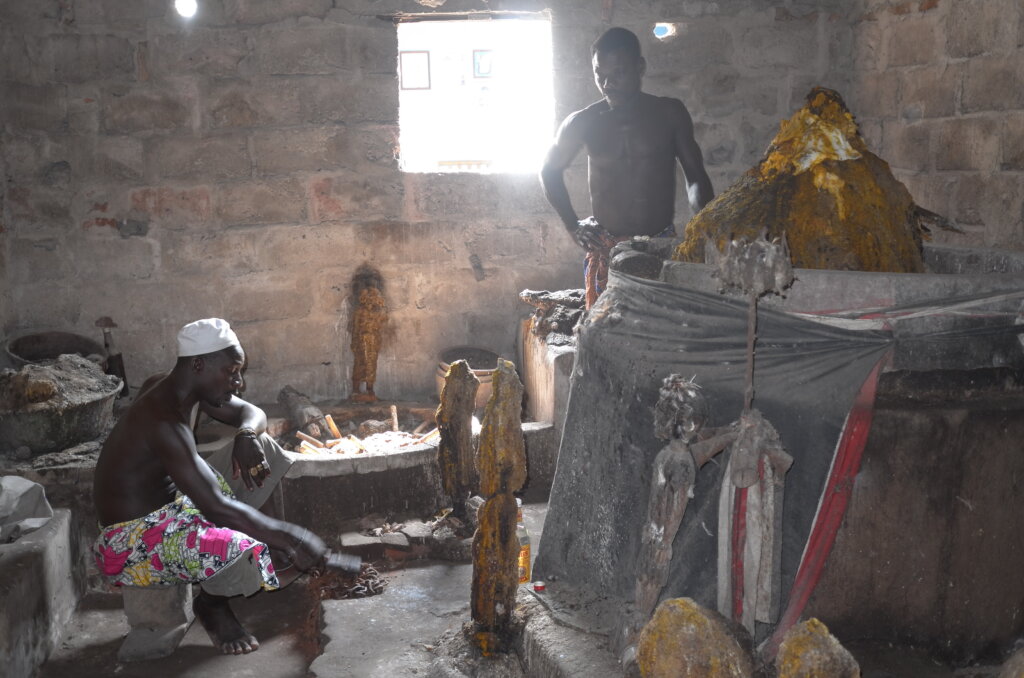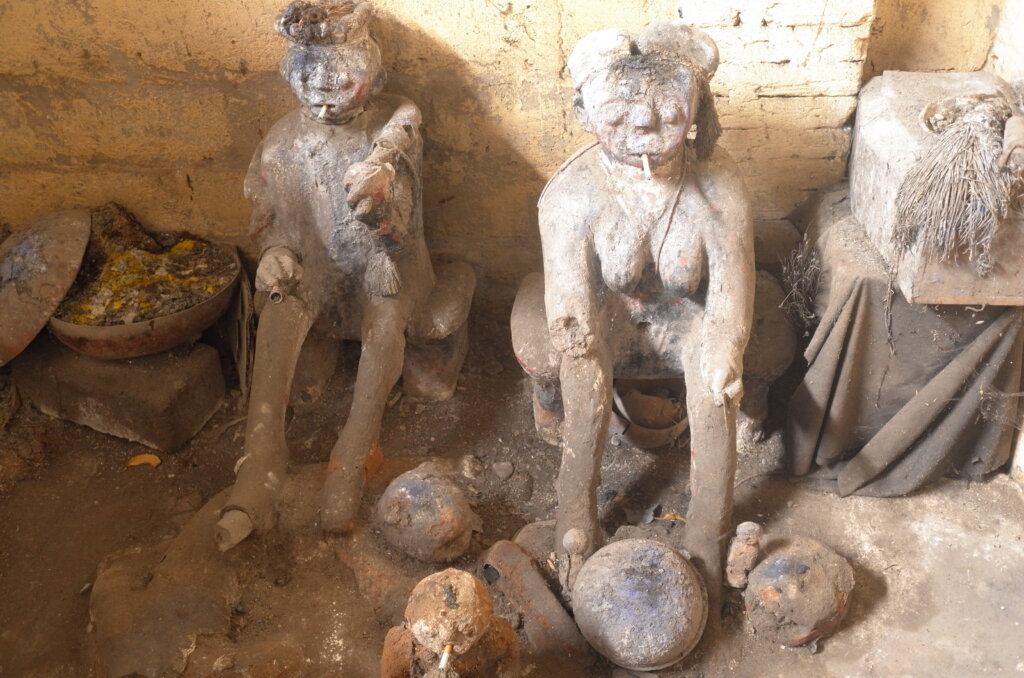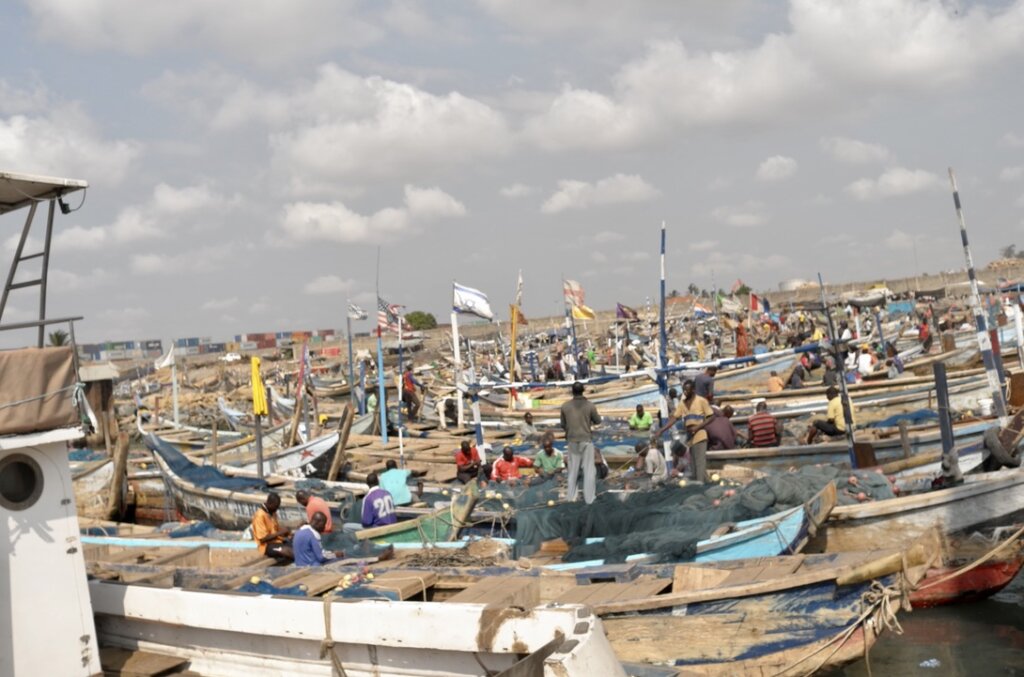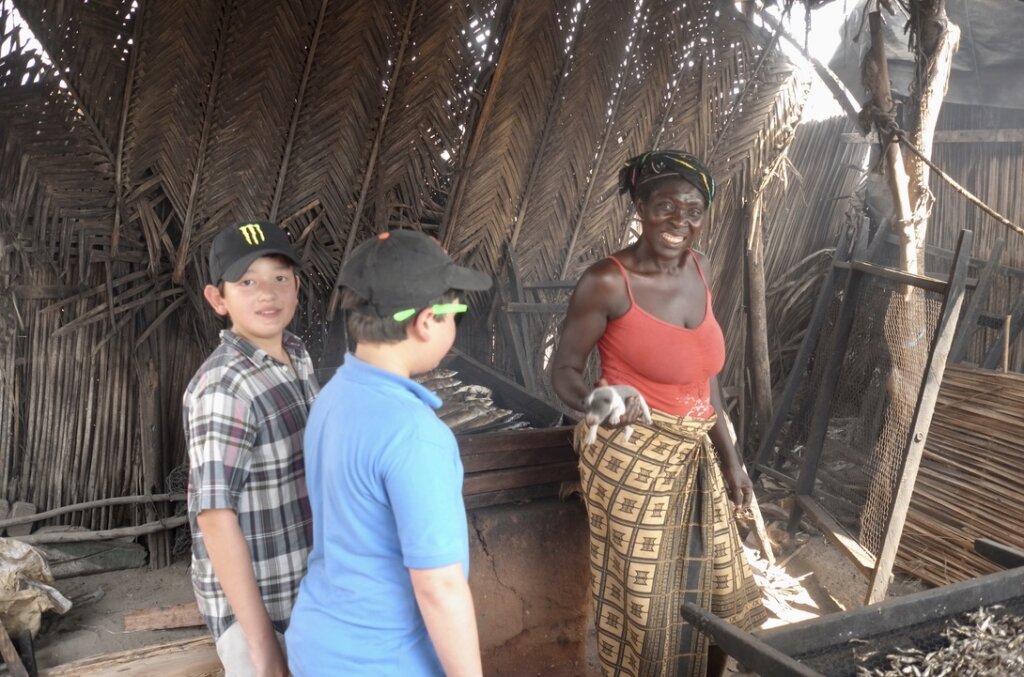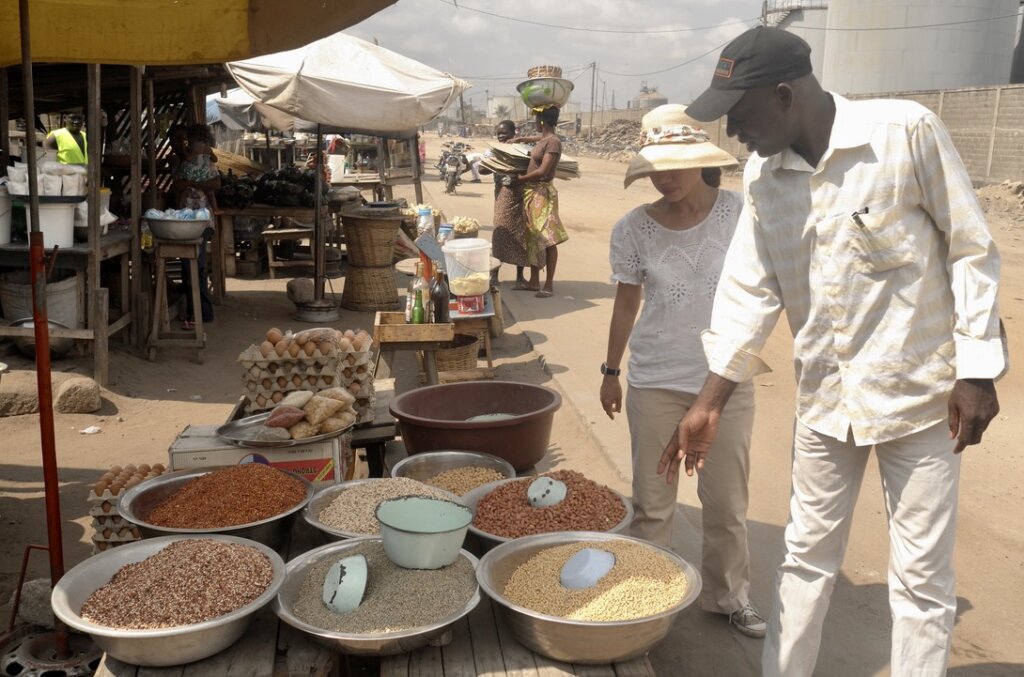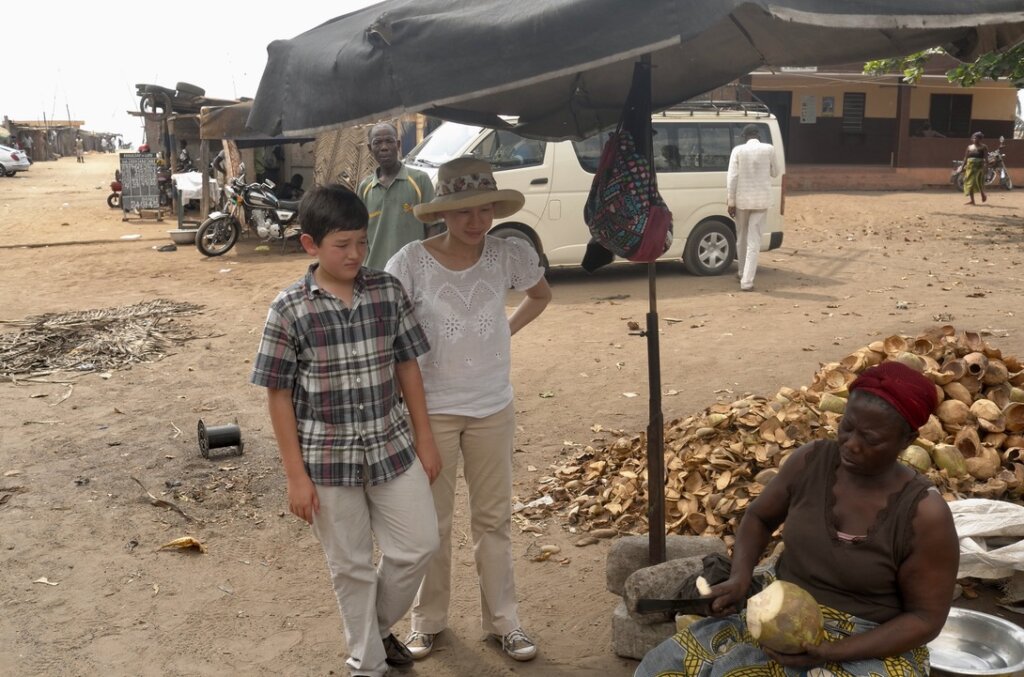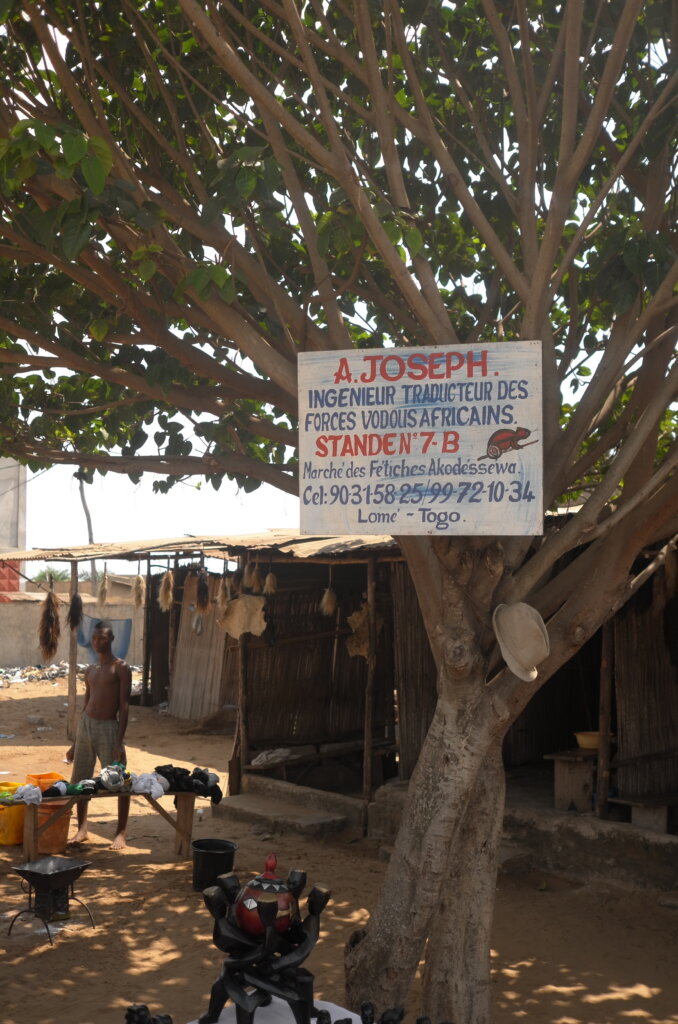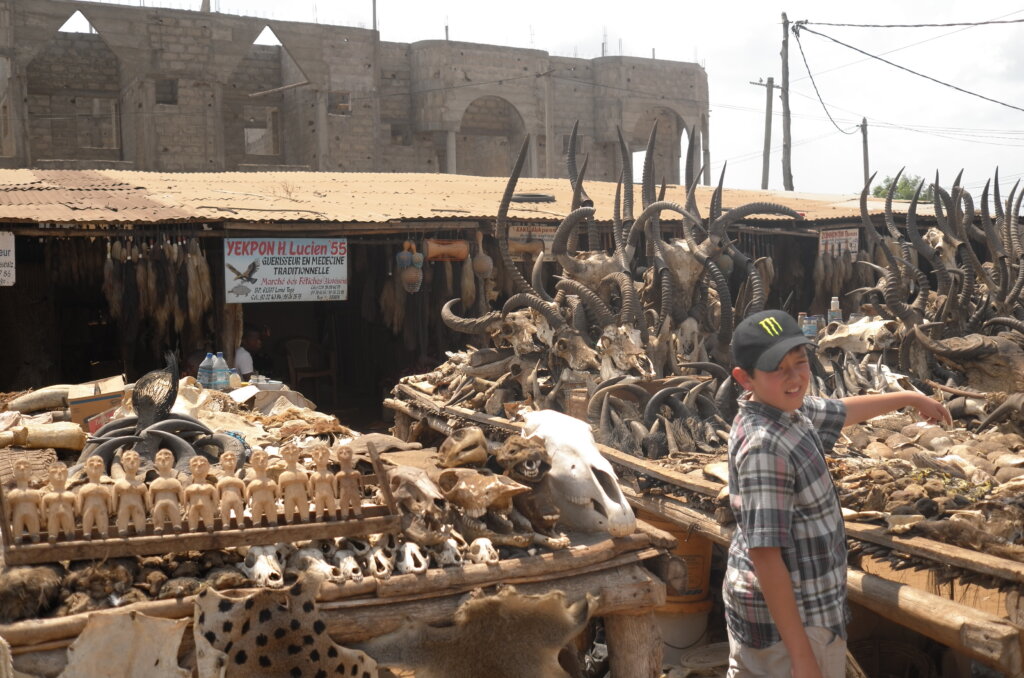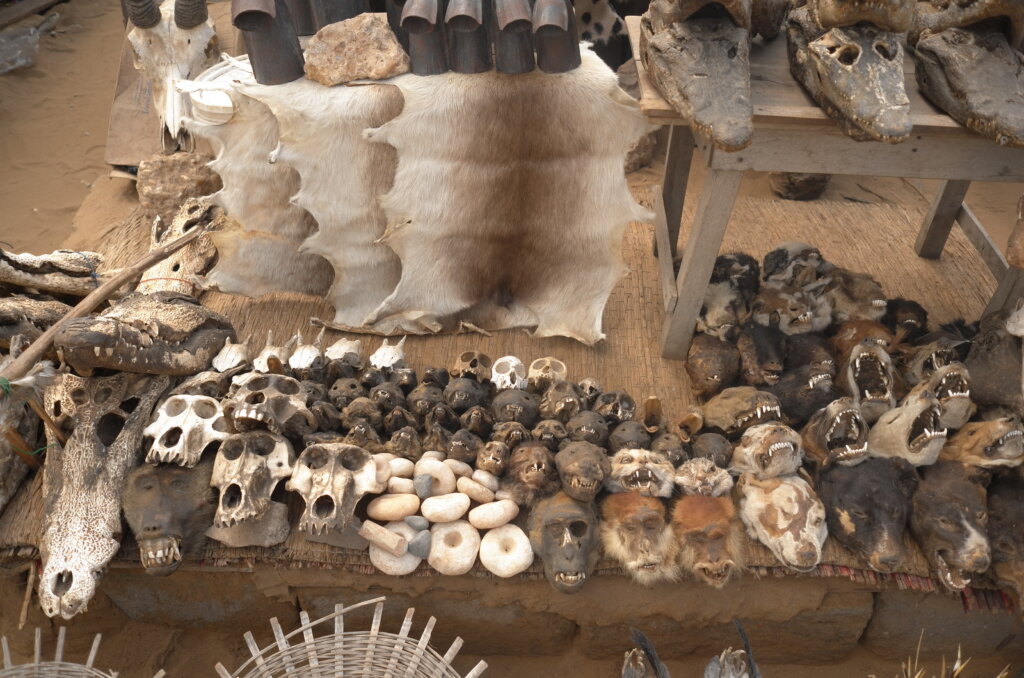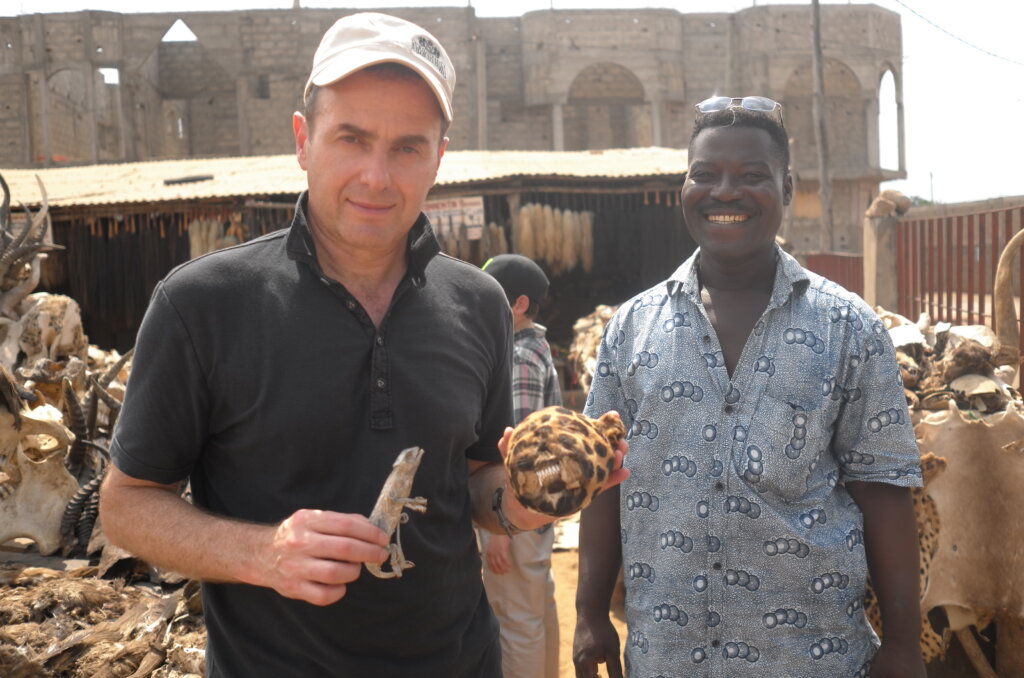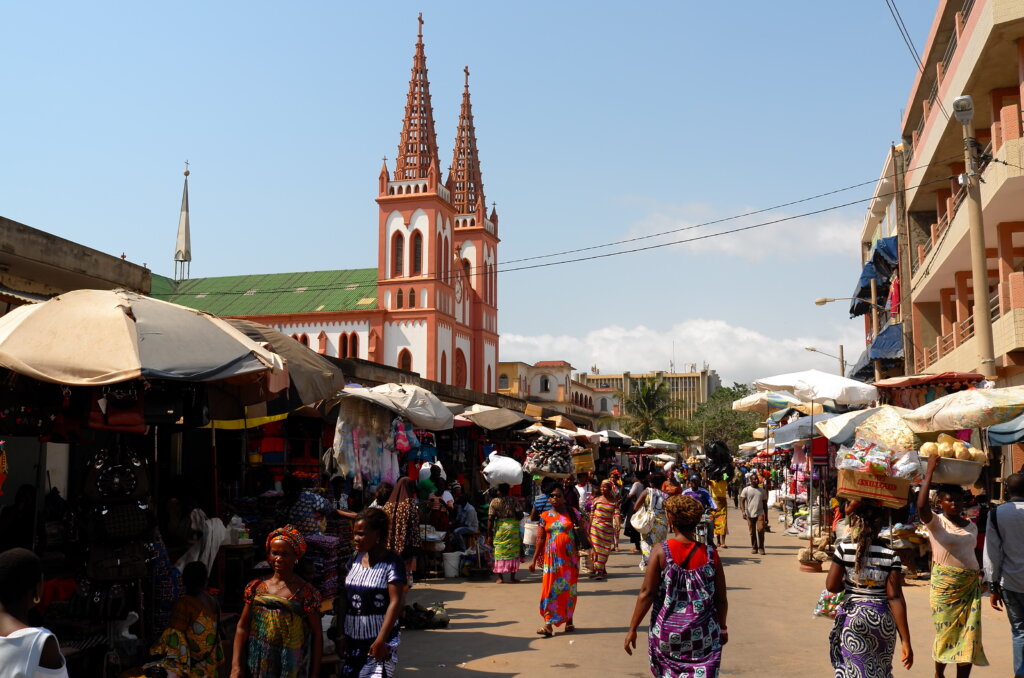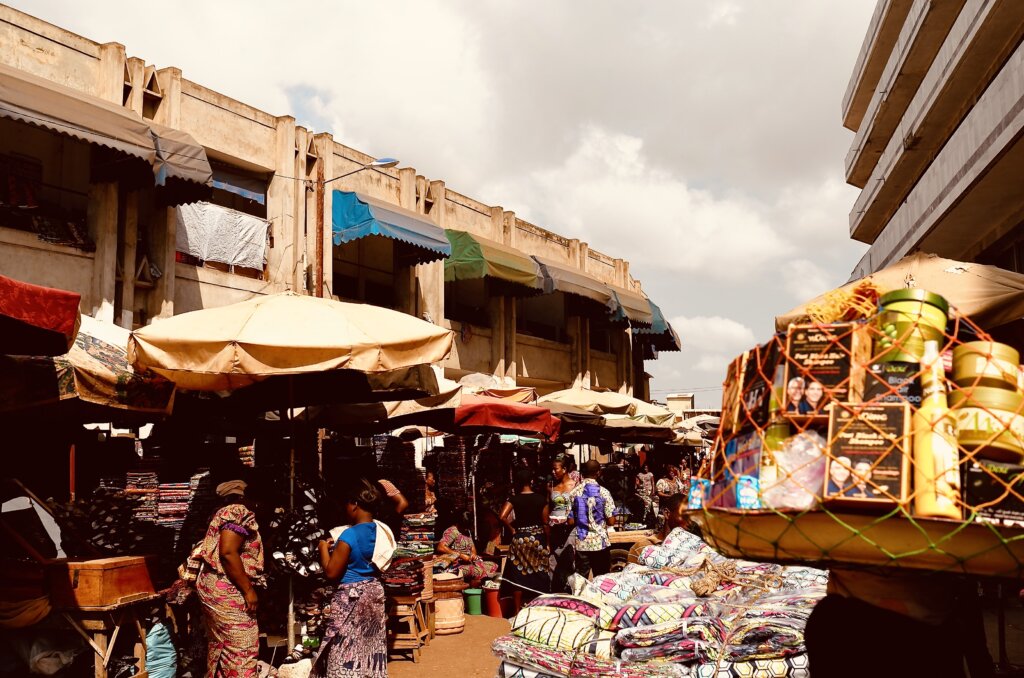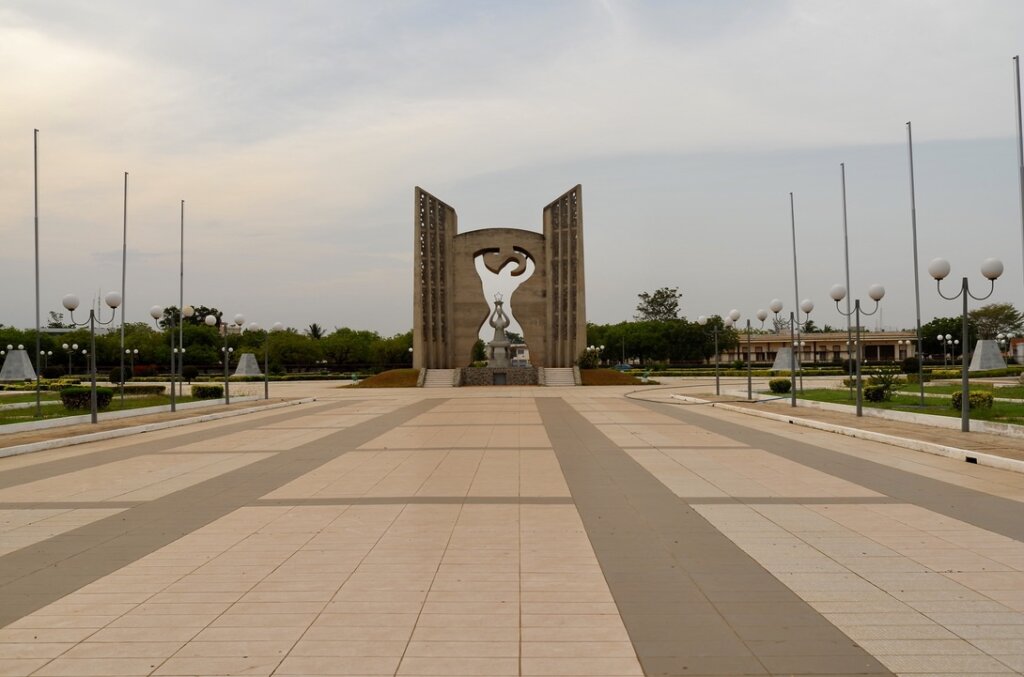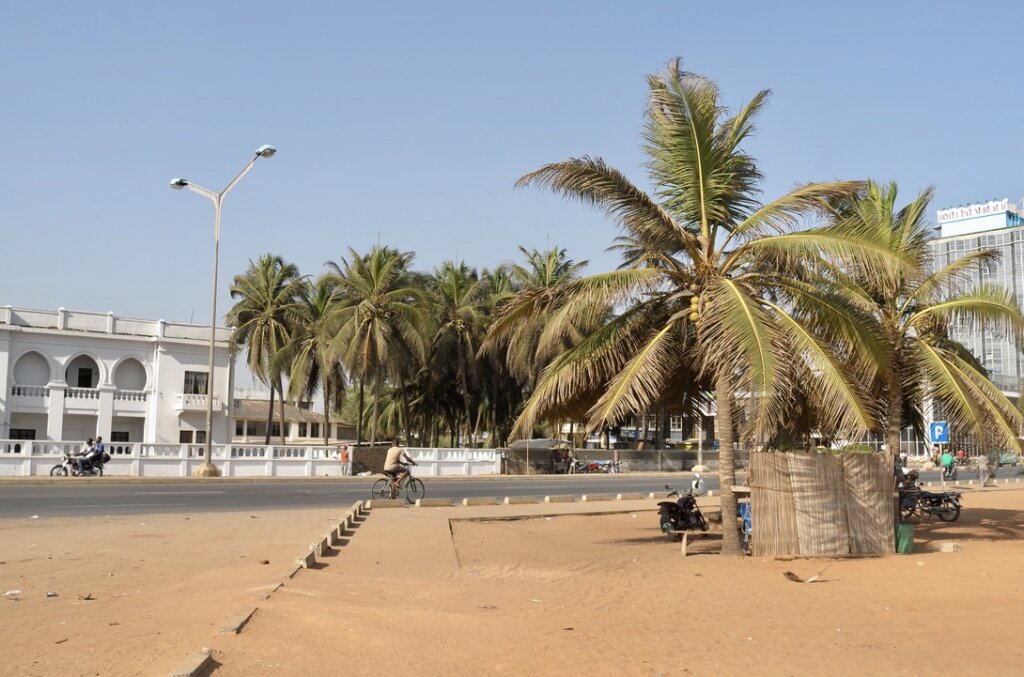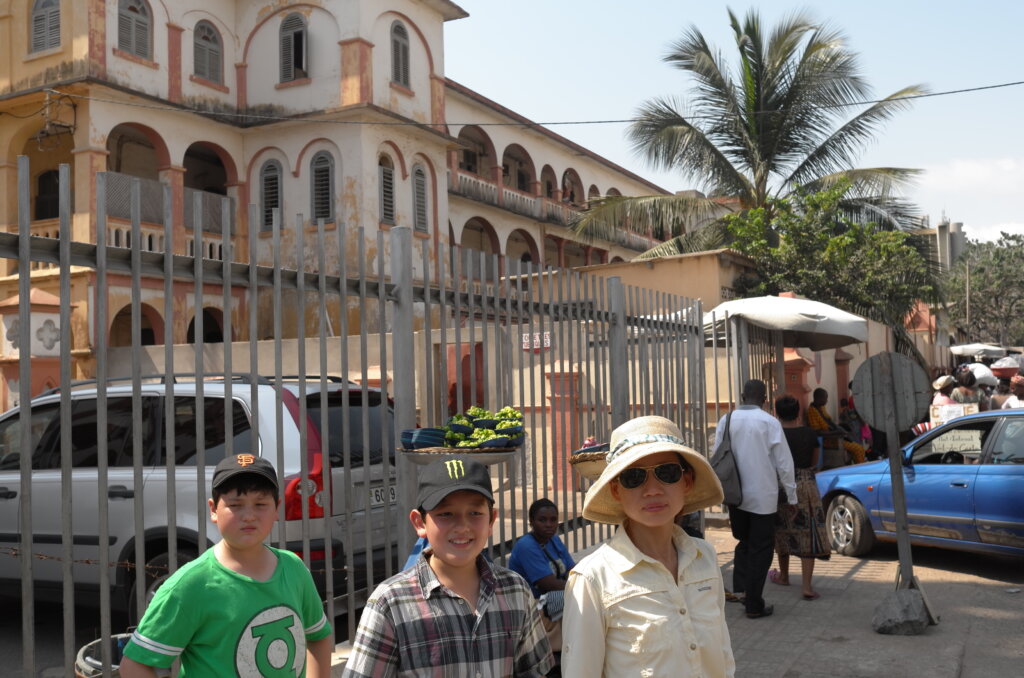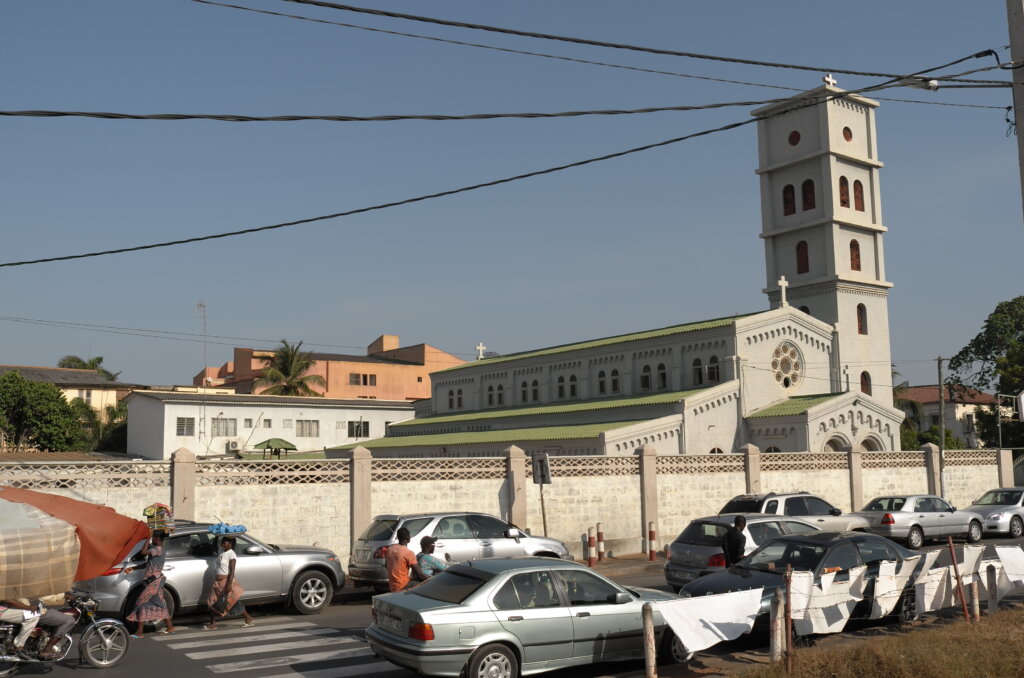Magic is central to West African society. Every phenomenon, event or process is explained and enhanced by magic. This is a deeply animistic society where the traditional monotheistic religions play second fiddle to ancient animist beliefs.
The Kabye blacksmiths, outstanding craftsmen famous throughout the region for forging metal with a 15 pound stone rather than a hammer are also traditional healers, able to treat wounds caused by fire or metal with a mixture of herbs and incantations.
The Bassar, who mine iron ore and transform it in their earth smelters, use magic charms and spells to do their work.
We hear of the Night Plane at Kara airport in Togo’s second largest city, which takes off at night, unseen, though its engines can be heard. It travels the world invisibly, carrying witches to their congresses.
We visit a colony of reformed witches. Banished from their villages for having caused harm or death to some people, they live in a “safe house” under the supervision of powerful fetish priests.
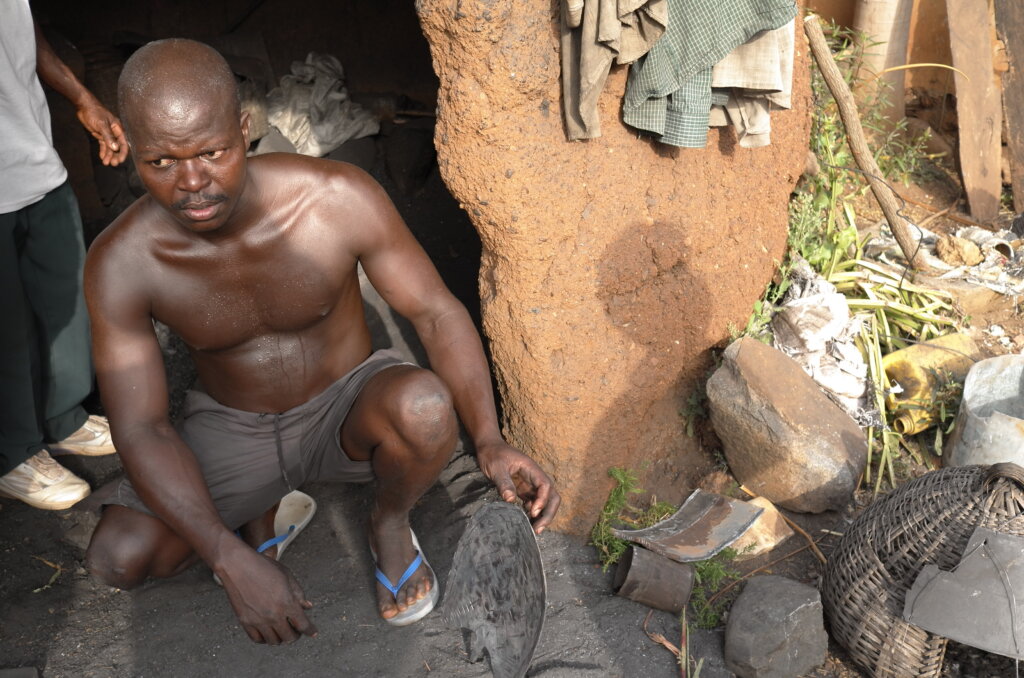
It is difficult for a rationalist to fully accept the role attributed to magic in Africa. The Fire Ceremony we attend, late one night, in a remote village in Benin seriously shakes our skepticism though. We see men from the Tem tribe rub burning torches against their bodies and their faces, munch on red hot embers like crisps – feeling no apparent pain and bearing no wounds on their bodies. The old man leading the ceremony moves with almost demonic energy, shrieking in a blood curdling voice and staring at us with mad eyes. He covers himself in flames two feet away from us, then cuts himself with sharp pieces of glass – to no apparent effect.
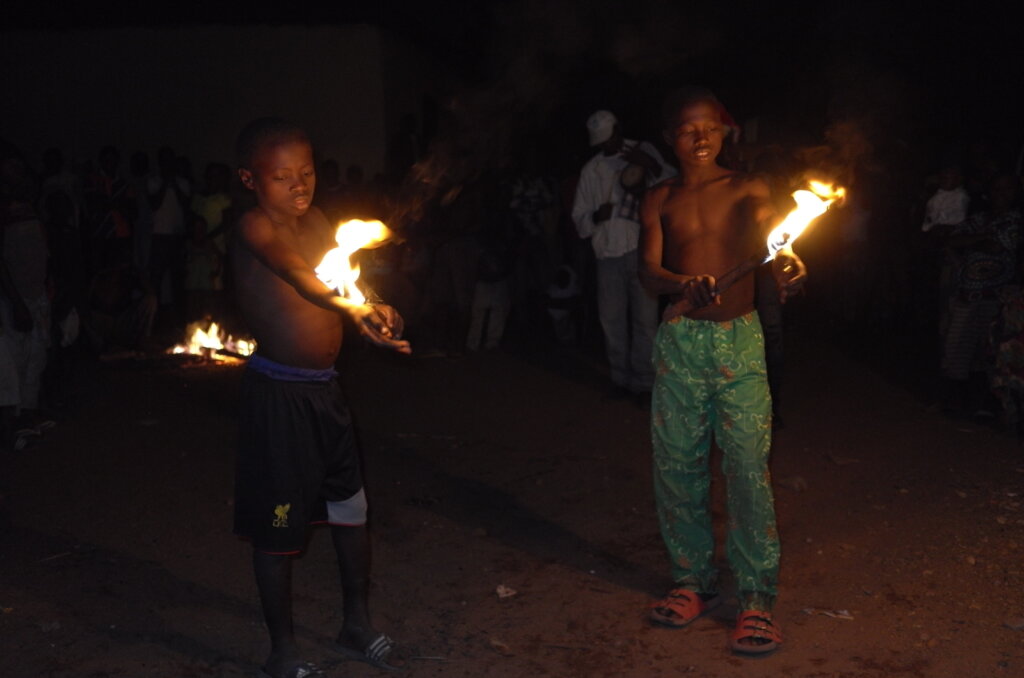
Magic, apart from its role in bringing order and understanding to their lives is also a filter through which people here are able to see the world in a more interesting, colourful manner. It is a script written over an otherwise harsh, mundane life.
